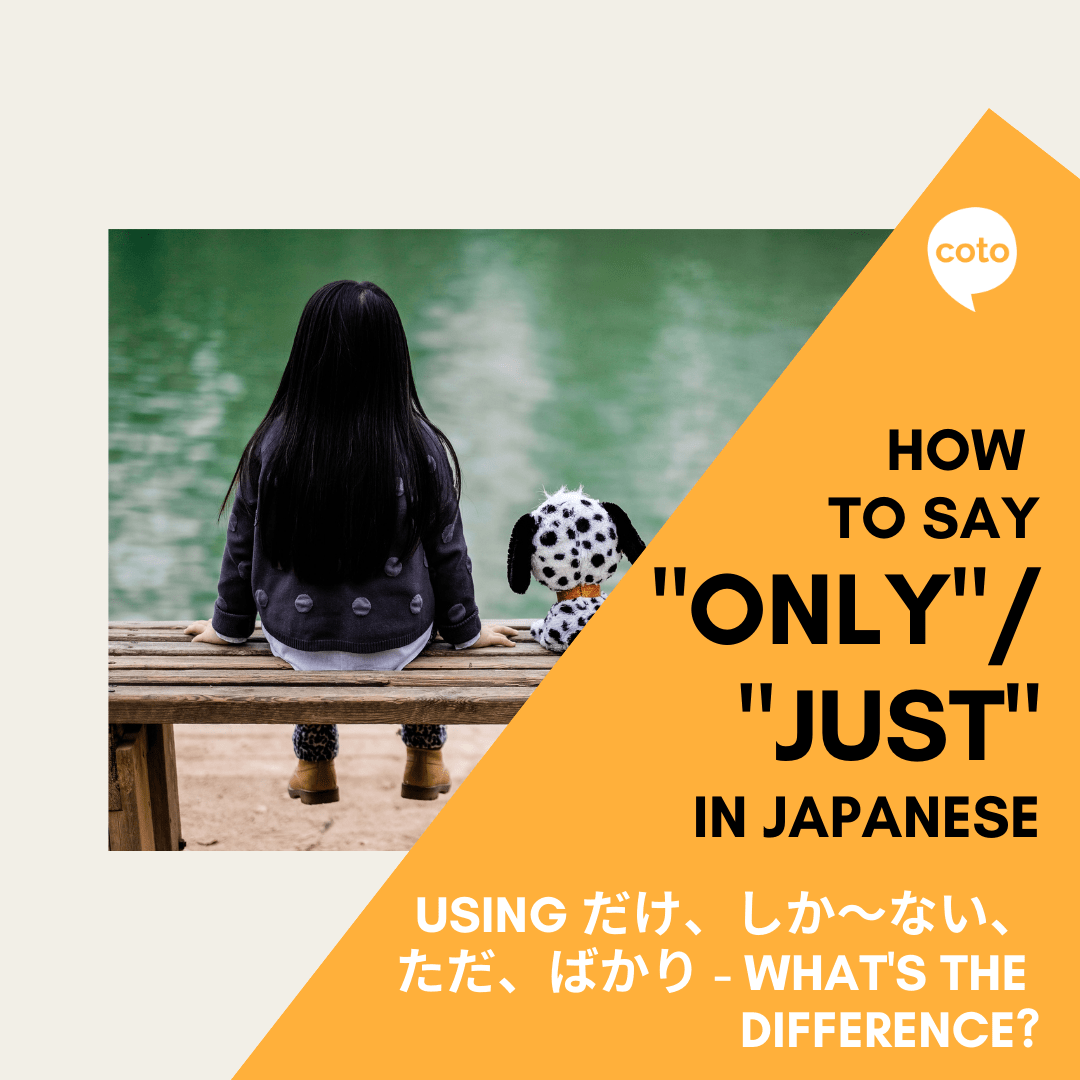
The Japanese language can have many different expressions for one english word – and vice versa. How to say “Only” or “just” in Japanese is a good example of this – because there are various ways to say it! In this article we will look at how to use the Japanese “dake”, “shika~nai”, “bakari”, and even “tada”.
Knowing the difference between these is useful. Some uses carry more positive connotations while another may contain a negative nuance. So knowing how to use them will make your Japanese speaking sound more natural – like a native speaker!
“Dake” and “Shika~nai”
The easiest ways to say “only” in Japanese are “dake” (だけ) and “shika~nai” (しか〜ない). “Dake” is used with positive verbs while “shika~nai” is used with negative verbs.
So to use “dake” the structure is: “dake” + Verb
To use “shika~nai” the order is “~shika” + Verb (nai/negative form)
You can also just end the sentence with “dake” in a casual conversation – or add a simple “desu” on the end if the situation is more formal.
Examples:
何回行ったの?
Nankai itta no?
How many times did you go?
3回だけ行ったよ。
Sankai dake itta yo.
I only went 3 times.
In the above example, “dake” (だけ) is used with the past tense verb “iku” (行く). If you wanted to express this with a negative verb (ない verb) it would be as follows:
3回しか行ってないよ。
Sankai shika ittenai yo.
I only went 3 times.
This sentence in English means pretty much the same thing whether you use “dake” (だけ) or “shika~nai” (しか〜ない). However in Japanese, they carry different nuances. “Shika~nai” is used with negative form verbs, and therefore has more of a “negative” sounding nuance.
Using “Bakari”
The Japanese word “bakari” (ばかり) has many uses in Japanese grammar. We cover some of them on our Youtube channel! Including the use of “bakari” in this context!
Here is a quick overview of the video.
This expression of “bakari” is used in a similar way here as “dake” – it is like “only”, “nothing but” in English.
Ichikawa-sensei uses the example of doing “nothing but watching tv.” Take a look:
テレビを見てばかりいました
Terebi o mite bakari imashita
“I did nothing but watch tv” / “I was only watching tv”
This example of “bakari” is used with verbs. Be careful, when “bakari” is used with a noun it means something completely different!
What about “Tada”?
The word “tada” (ただ) also can be used like the english word “just”. For example:
ただ友達だよ
Tada tomodachi da yo
(He is) just a friend
“Tada” is often used to add a detail or elaborate on something that has just been said. Such as “I think this is a good restaurant. It’s just a bit expensive.” → このレストランが良いと思う。ただちょっとたかい。
This is a different expression of the English word “just” as opposed to “dake”, “shika~nai”, and “bakari”. Tada almost always goes at the beginning of a sentence. It can also be used with だけ such as in the following sentence:
ただ友達だけだよ
Tada tomodachi dake da yo
(He is) just a friend
Keep these differences in mind when you are speaking!
Try out using some of these words next time you want to say “just” or “only” in Japanese.















